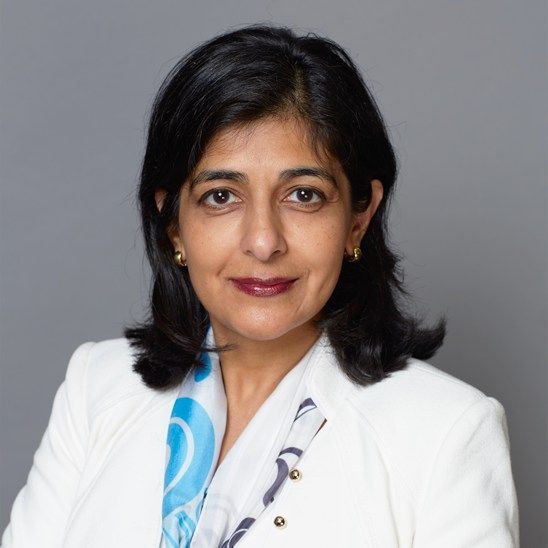Article
FDA Grants Breakthrough Designation to Fingolimod (Gilenya, Novartis)
Author(s):
The oral DMT showed an 82% reduction in relapses compared to interferon ß-1a.

Tanuja Chitnis, MD
Novartis has announced that the US Food and Drug Administration (FDA) granted a Breakthrough Therapy designation to fingolimod (Gilenya), intended to treat patients with pediatric multiple sclerosis (MS).
The decision to grant the designation was made based on the PARADIGMS trial, a phase 3 trial which compared fingolimod to interferon ß-1a in children and adolescents aged 10 and older with relapsing MS. The therapy reduced relapses by 81.9% compared to interferon ß-1a.
“Despite the fact that children experience approximately 2 to 3 times as many relapses as a typical adult-onset MS patient, there are currently no disease-modifying therapies approved for the pediatric population,” Tanuja Chitnis, MD, the director of the Partners Pediatric Multiple Sclerosis Center at Massachusetts General Hospital, and a scientist at the Ann Romney Center at Brigham and Women’s Hospital, in Boston, said in a statement. “Children with MS differ from adults in important ways and additional treatment options for pediatric patients are needed.”
The double-blind, double-dummy PARADIGMS trial randomized 215 patients to either combination fingolimod 0.25/0.5 mg QD and interferon ß-1a placebo (n = 107) or combination IFN ß-1a 30 µg QW and placebo fingolimod (n = 108) for 2 years, with an optional single-arm, open-label fingolimod extension phase up to 5 years.
The fingolimod arm was observed as having only 25 relapses in 180 patent-years, compared to 120 relapses in 163 patient-years in the interferon ß-1a arm.
Additionally, the data showed a reduction in magnetic resonance imaging (MRI) lesions compared to interferon ß-1a, with the annualized rate showing a 52.6% (P <.001) reduction in neT2 lesions and a 66% per scan (P <.001) reduction in Gd+ T1 lesions. Brain atrophy was also positively affected from baseline.
Pediatric MS, while a somewhat newly recognized condition, impacts thousands in the US. Fingolimod was previously approved to treat relapsing MS (RRMS) as a once-daily pill as disease-modifying therapy (DMT). It is the most prescribed oral DMT in the US, with approximately 70,000 patients exposed to it.
“So there's probably 3 features that I would say are really important to know [about pediatric MS],” Chitnis told MD Magazine. “One is that children have a highly inflammatory disease. They have 2 to 3 times as many relapses as a typical adult patient will. Second is that they can have significant cognitive issues, and this can translate into difficulties with school as well as later on in life, so it's important to both treat and monitor and support that aspect. That is also a factor that's being studied in these trials so they'll understand, once all of these results are analyzed, whether the drug also affects cognition. And thirdly is that children progress more slowly on the disabilities scale in terms of ambulation disability, but at a younger age could have more disability than an adult patient.”
For more extensive coverage pertaining to multiple sclerosis, check out MD Magazine's sister site, NeurologyLive. The Clinical Focus page serves as a resource for articles, videos, and newly released data from the field’s most attended conferences.




